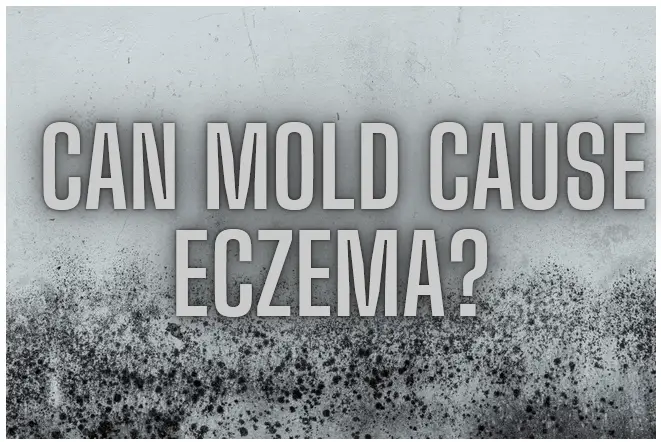Mold exposure can potentially trigger or worsen eczema symptoms in some individuals. While the exact relationship between mold and eczema is not fully understood, there is evidence to suggest that mold can contribute to skin inflammation and exacerbate eczema in susceptible individuals.
What Is Mold?
Mold refers to a type of fungus that grows in multicellular filaments known as hyphae. It is a natural part of the environment and can be found both indoors and outdoors. Mold plays a role in breaking down dead organic matter, such as leaves and wood, by decomposing it.
Mold reproduces by releasing tiny spores into the air. These spores are microscopic and lightweight, allowing them to travel through the air and settle on various surfaces. When conditions are favorable, such as the presence of moisture and nutrients, the spores can germinate and grow into visible mold colonies.
Mold growth can occur in areas with high humidity, water damage, leaks, or poor ventilation. Common areas where mold can be found include bathrooms, kitchens, basements, and areas affected by water leaks or flooding.
Exposure to mold can cause various health effects, depending on the individual’s sensitivity and the type and amount of mold present. Some people may experience allergic reactions, such as sneezing, coughing, wheezing, or skin irritation, when exposed to mold. Individuals with respiratory conditions, allergies, or weakened immune systems may be more susceptible to the adverse effects of mold exposure.
Can Mold Cause Eczema?
There are a few ways in which mold can impact eczema:
- Allergic Reactions: Mold spores can act as allergens and trigger allergic reactions in some people. When individuals with eczema come into contact with mold spores, their immune system may react by releasing inflammatory substances, leading to skin irritation and worsening of eczema symptoms.
- Irritant Effects: Mold can produce volatile organic compounds (VOCs) and other substances that can act as irritants to the skin. Direct contact with mold or exposure to mold-contaminated surfaces or materials can cause skin irritation and potentially worsen eczema symptoms.
- Moisture and Humidity: Mold thrives in damp and humid environments. Excessive moisture in indoor spaces, such as from leaks, high humidity, or water damage, can promote mold growth. Increased mold exposure due to these conditions can potentially trigger eczema flare-ups in susceptible individuals.
How To Prevent Mold?
To prevent mold growth, it is important to control moisture levels in indoor spaces, promptly address any water leaks or damage, ensure proper ventilation, and maintain a clean and dry environment. If you suspect mold growth in your home or experience persistent health symptoms related to mold exposure, it is advisable to seek professional assistance for proper assessment and remediation.
Final Thoughts
It’s important to note that not everyone with eczema will be sensitive to mold, and the impact of mold on eczema can vary from person to person. Some individuals may be more susceptible to mold-related triggers, while others may not experience a significant effect. It’s also worth mentioning that other factors, such as genetics, immune system dysfunction, and personal triggers, can play a role in the development and exacerbation of eczema.
If you suspect that mold exposure is triggering or aggravating your eczema symptoms, it is advisable to consult with a healthcare professional, such as a dermatologist or allergist, for proper evaluation and guidance. They can help determine if mold is a contributing factor to your eczema and provide recommendations for managing and reducing exposure to mold.

